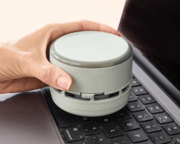Health experts raise concerns over escalating cases of infectious bowel disease
- Replies 33
Like any living organism, bacteria are constantly evolving, adapting, and finding ways to survive.
As such, medical experts have observed that the highly contagious bowel infection known as shigellosis (caused by bacteria of the genus Shigella) is becoming increasingly resistant to antibiotic treatment—a worrying development indeed.
Shigellosis is characterised by a sudden onset of symptoms, including diarrhoea, nausea, vomiting, fever, and abdominal cramps.
It can appear as quickly as 12 hours after exposure and has the potential to rapidly worsen, especially in vulnerable populations such as young children, older adults, and individuals with weakened immune systems.
Typically, these symptoms persist for about 5-7 days, and most shigellosis cases resolve without requiring hospitalisation. Shigella, the bacteria responsible for this condition, thrives in the human intestine and is commonly transmitted through contaminated food or through direct person-to-person contact, such as unprotected intercourse.
It's important to note that some individuals infected with Shigella may not display any symptoms themselves but can still transmit the bacteria to others.
It is crucial for us to remain vigilant about any potential biological threats that may emerge in our communities. This is especially important given the recent cases of shigellosis that appear to be linked to specific high-risk activities such as travelling to other countries.
With the awareness of the existence of such infections, many of us are left wondering: what steps can we take to safeguard ourselves from shigellosis, or any other contagious diseases for that matter?
Luckily, the answer is simple. The most effective method to stop the spread of Shigella is by practising good personal hygiene and washing your hands regularly. It is important to wash your hands thoroughly with soap, paying extra attention after using the restroom and before handling food.
It is also crucial to supervise toddlers and young children to ensure they wash their hands properly.
When you are travelling, experts recommend drinking only treated or boiled water and avoiding swallowing water from ponds, lakes, or untreated pools.
Victoria Health particularly recommends that anyone engaging in sexual contact with another person should use condoms to protect themselves from the potentially devastating consequences of sex-transmitted diseases like shigellosis.

If you believe you may have been exposed to shigellosis, contact your doctor immediately for a full diagnosis and treatment. Early action can be critical and could save you from long-term, potentially life-threatening health issues.
When it comes to your well-being, it's always best to be prepared, proactive, and vigilant. Members, stay safe, and be sure to keep your guard up at all times!
What are your thoughts on this news? Let us know in the comments below!
As such, medical experts have observed that the highly contagious bowel infection known as shigellosis (caused by bacteria of the genus Shigella) is becoming increasingly resistant to antibiotic treatment—a worrying development indeed.
Shigellosis is characterised by a sudden onset of symptoms, including diarrhoea, nausea, vomiting, fever, and abdominal cramps.
It can appear as quickly as 12 hours after exposure and has the potential to rapidly worsen, especially in vulnerable populations such as young children, older adults, and individuals with weakened immune systems.
Typically, these symptoms persist for about 5-7 days, and most shigellosis cases resolve without requiring hospitalisation. Shigella, the bacteria responsible for this condition, thrives in the human intestine and is commonly transmitted through contaminated food or through direct person-to-person contact, such as unprotected intercourse.
It's important to note that some individuals infected with Shigella may not display any symptoms themselves but can still transmit the bacteria to others.
It is crucial for us to remain vigilant about any potential biological threats that may emerge in our communities. This is especially important given the recent cases of shigellosis that appear to be linked to specific high-risk activities such as travelling to other countries.
With the awareness of the existence of such infections, many of us are left wondering: what steps can we take to safeguard ourselves from shigellosis, or any other contagious diseases for that matter?
Luckily, the answer is simple. The most effective method to stop the spread of Shigella is by practising good personal hygiene and washing your hands regularly. It is important to wash your hands thoroughly with soap, paying extra attention after using the restroom and before handling food.
It is also crucial to supervise toddlers and young children to ensure they wash their hands properly.
When you are travelling, experts recommend drinking only treated or boiled water and avoiding swallowing water from ponds, lakes, or untreated pools.
Victoria Health particularly recommends that anyone engaging in sexual contact with another person should use condoms to protect themselves from the potentially devastating consequences of sex-transmitted diseases like shigellosis.
Key Takeaways
- Cases of shigellosis, a highly contagious bowel infection, are on the rise in Victoria.
- Shigellosis, characterised by diarrhoea, fever, nausea, vomiting and abdominal cramps, can cause severe illness and complications in young children, older people and the immunocompromised.
- Many cases are occurring among returned travellers.
- Health authorities are advising everyone to practise good hygiene, such as frequently washing hands thoroughly, especially after using the toilet and before eating or preparing food.
If you believe you may have been exposed to shigellosis, contact your doctor immediately for a full diagnosis and treatment. Early action can be critical and could save you from long-term, potentially life-threatening health issues.
When it comes to your well-being, it's always best to be prepared, proactive, and vigilant. Members, stay safe, and be sure to keep your guard up at all times!
What are your thoughts on this news? Let us know in the comments below!
Last edited by a moderator:








